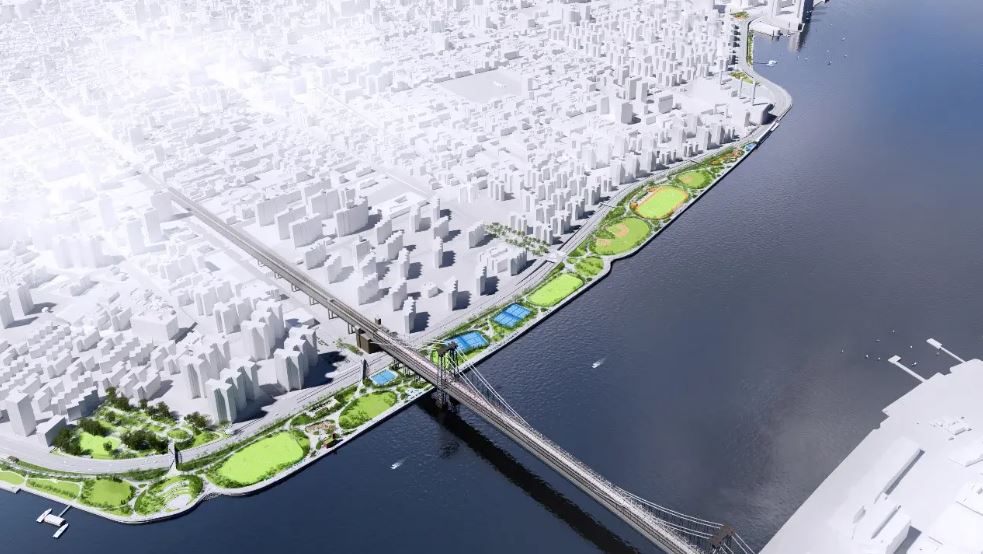In the next decades NYC will have to fight with floods and rising seas
(Sustainabilityenvironment.com) – The first part of the East Side coast climate resilience project in New York City is officially completed. To celebrate the work was the mayor of NYC, Eric Adams who defined the project as “more than just infrastructure […] It is the way we will protect our city from the rising sea and the strongest storms“.
The East Side Coastal Resiliency Project (ESCR) is a coastal protection initiative jointly funded by the City of New York and the federal government. The goal is to reduce the risk of flooding from coastal storms and rising seas on the East Side, from East 25th Street to Montgomery Street. The boundaries of this project are not random but correspond to the c.d. natural “pinpoints” of the centenary flood plain, that is, the areas where the soil level is naturally higher along the coast, making it easier to close the water system that enters from the north and south.
Integrating climate resilience into city life
Instead of creating an inaccessible barrier, the plan requalifies the waterfront by making it available to the community. It increases the number of open spaces and creates a number of additional infrastructure and social services.
“This project will create good jobs, implement cutting-edge technology and engineering, and most importantly, protect more than 100,000 residents of New York City due to extreme weather conditions. New York City is at the forefront of climate and we will continue to address the extreme weather threats that every neighborhood faces with the urgency it requires”.
Read also Inflation Reduction Act, US climate law comes in
The East Side Coastal Resiliency Project (ESCR) is a small part of the massive effort to increase the climate resilience of the most exposed areas of Manhattan Island. Proceeding south, after the plan for the East Side, the works for the Financial District and Seaport Climate Resilience meet, again an intervention that aims to protect citizens, without taking away space from the city, indeed creating new green areas.
Among the interventions put in place for protection are flood walls, mobile gates, raised parks, securing well 2.4 miles of coastline. The objective is to ensure maximum climate resilience by 2050.

